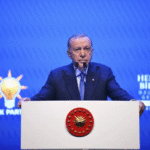Telegram CEO to Leave $13.9 Billion Fortune to Over 100 Children
Pavel Durov, the CEO of Telegram, has said he will give his $13.9 billion fortune to more than 100 children he has fathered. Durov told Le Point that this choice is fair and will stop fights over inheritance.
He officially admits to having six children with three women, but a fertility clinic later told him that his sperm donations from 15 years ago have led to over 100 children in 12 countries. “They are all my kids and will have the same rights.” Durov said, “I don’t want them to fight over my money after I’m gone.”
Strict Rules to Promote Independence
Durov, on the other hand, wants his kids to be able to take care of themselves, even though he is very rich. So, for 30 years, they won’t get any money from their parents. He went on, “I want them to be able to make things and have self-confidence, not rely on a bank account.” He hopes that by doing this, they will become more resilient and ambitious.
Durov also admitted that his job of protecting online privacy came with risks. He said, “My job is dangerous, so I thought it was time to write my will.” The 40-year-old tech billionaire now lives in Dubai and has citizenship in both France and the UAE.
Durov has serious legal problems in addition to these personal ones. French police arrested him at an airport last year and said that Telegram was letting people do illegal things on its platform. The charges include drug trafficking, sexual abuse of children, and fraud involving money.
However, Durov forcefully rejected these accusations, calling them “completely absurd.” He argued, “Just because criminals use our platform doesn’t make us responsible for their actions.” According to him, criminals abusing Telegram do not automatically make the company complicit.
Telegram Under Scrutiny for Content Moderation
At the same time, people all over the world are still watching Telegram’s content moderation policies. The platform has over a billion active users every month and is known for its encrypted messaging and large group chats. Critics, on the other hand, say that Telegram allows more extremist content, false information, and illegal activity than its competitors.
Since 2018, Telegram has taken a number of steps to address these issues. For example, the company started using content fingerprinting, hired more moderators, worked with NGOs, and released reports on how open it is. Durov says that these efforts meet or even go beyond what is expected in the industry. Telegram also says that it blocks thousands of channels that break the rules every day.











